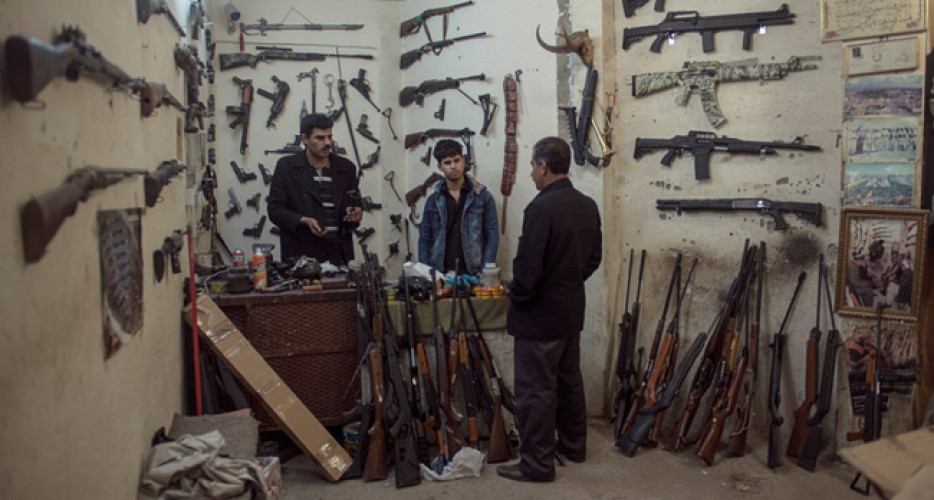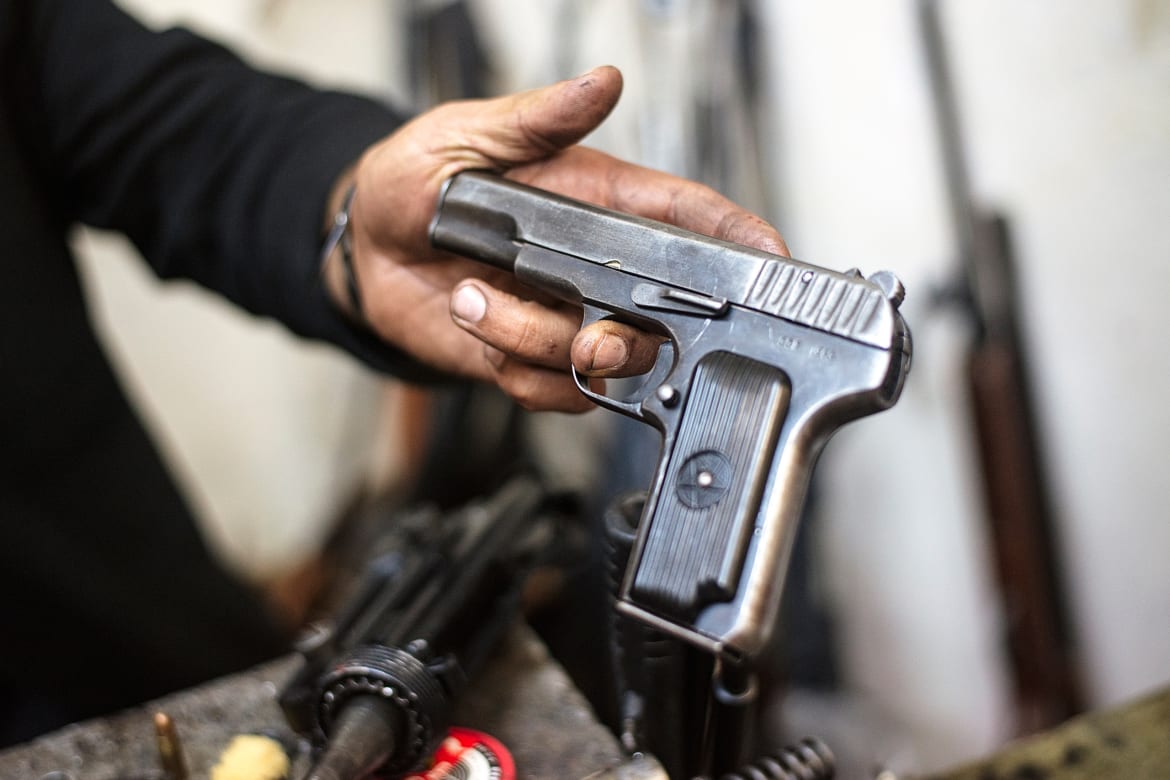
Peregraf- Sangar Salar in Sulaimaniyah
The market is entirely different. People deal with guns and ammunition. The deal is illegal but conducted in the open.
All types of weaponry are found, from pistols to the Russian DShK, along with their ammunition. Specific instructions aside, they have the final say about the deals.
The market itself is illegal, but business is conducted under the security forces' watch.
In the past, heavy machines like DShK were commonly sold, now only light weaponry can be seen. A shop owner in Sulaimaniyah accepted to speak to Peregraf under the condition of remaining anonymous, "When we sell guns beyond what the security has instructed, we will not register them."
Although the government calls the market illegal, the security forces have special instructions for them. Among the guidelines, is to deal only inside their shops, not to deal with non-Kurds, not to deal with explosives, and both dealers should have passed the legal age of 18. Another condition is to have a detailed report of any deal, including the names, phone numbers, IDs, addresses, and later file them to the security forces.
"Some of these conditions are violated, especially concerning the explosives, like grenades, TNT, and other illegal substances," he said, "We have many deals outside of our shops, without registering the required information."
According to law number 16 of 1993, guns can be owned and held, but not dealt with, even then some specific conditions are required to own a gun.
In 2015, the Ministry of Interior of the Kurdistan Regional Government (KRG) issued a decree to regulate arms license, with the decision to allow people to carry guns residing in the hands of the governor and administration heads only. As for larger weapons, like Kalashnikov, only the minister could decide.
The General Manager at the Ministry of Interior, Sami Jalal, told Peregraf, "According to Law 16 of 1993, purchase and sale of weapon is banned."
The ministry has not given license to any such shops, he said, but they work under the authority of Asayish, Kurdish security forces, which is a more partisan institution.
This law is being violated for 25 years.
The governor of Sulaimaniyah, Haval Abubakir, told Peregraf, "We will decide the gun markets in a week." He did not mention the details of their work, "When it's done, we will announce the results."
Gun markets might contribute to the rise of murder and assassinations in the Kurdistan region, as recently observed.
Ziya Petros, the head of the Human Rights Independent Commission in the Kurdistan Region confirmed, "Murder and suicide have risen to a dangerous level, if not solved, it might turn more common."
Petros said the situation of gunrunning and carrying guns seem more "like a chaos" in the region, "There should be a solution for [the issue of] carrying guns. Such markets should be shut."
Petros went further, asking for an amendment to the gun laws.
The shop owner additionally mentionned, "Sometimes I like shootings and battles, so I will go to an empty place, and shoot some bullets to get calm."
His five-year-old child is also interested, according to him, "All of his toys are guns, and my wife also learnt how to use them."
Civil society organisations and NGOs have spoken often against such a phenomenon. After a murder has occurred, they will speak up again.
The spokesman of the Human Rights Commission, Muhammad Gomashini said, "We tried to shut these markets down for two years and reduce the level of gun presence." However, what they could achieve was only to seize some weapons, "Markets are still there."
He sees no reason for such markets, claiming that they impact the city negatively. If for trade, he says, it's a bad trade. However, if KRG buys guns from them, it can do it through legal channels. He says KRG should supervise a regulated market, "Most of the murders are through unlicensed guns, so there should be a solution to this."
The source of these guns is not clear, some saying they were obtained during the Islamic State (ISIS) battle.
Soran Omer, a parliamentarian, told Peregraf, "Some of the weapons sent by developed countries to us, were sold in the markets." He added, "Some even traded weapons with the ISIS during 2014-2017.”
Omer claims that some of these weapons have been imported through large global bands from abroad, "There have been no serious efforts to implement the law."
Weapon is part of the people's culture now, as they often present it during campaigns and celebrations. Some political parties have even distributed guns to their affiliates in election campaigns.
